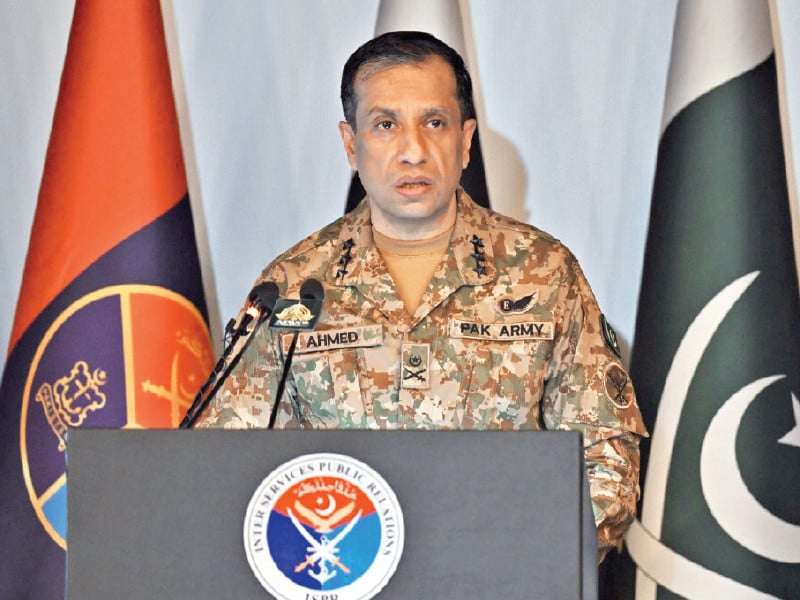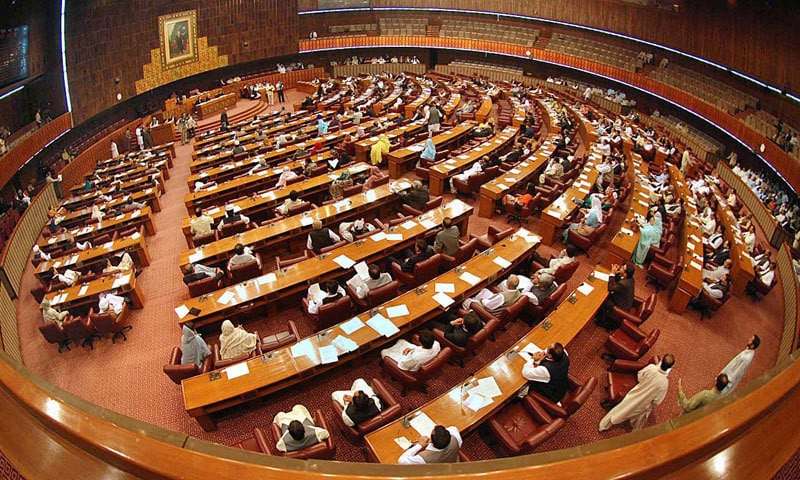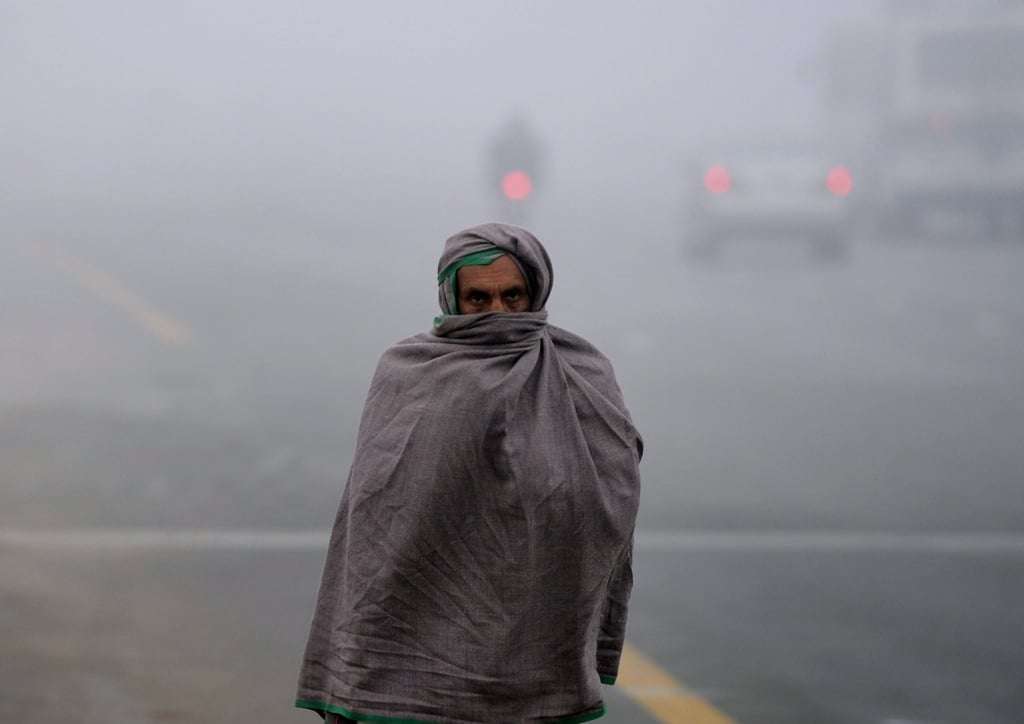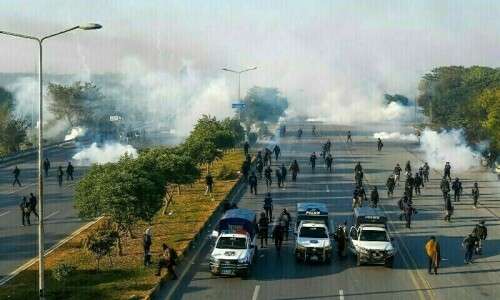Pakistan’s military leadership has strongly rejected recent accusations by the Indian Army Chief, who labeled Pakistan as an “epicenter” of terrorism. The Pakistan military’s media wing, Inter-Services Public Relations (ISPR), dismissed the allegations as baseless and politically motivated, accusing India of attempting to deflect attention from its actions in Indian Illegally Occupied Jammu and Kashmir (IIOJK). This move is seen as another attempt to divert global attention from the ongoing oppression in the region, where India’s military has faced widespread criticism for human rights violations.
This article elaborates on the official response from Pakistan’s military to the Indian Army Chief’s remarks, addressing the broader context of India’s actions in IIOJK, Pakistan’s counterterrorism operations, and the ongoing security situation in both countries.
H1: Pakistan Responds to Allegations of Terrorism from Indian Army Chief
H2: ISPR Denounces Indian Army Chief’s Remarks as False and Duplicitous
The Inter-Services Public Relations (ISPR) responded sharply to the Indian Army Chief’s accusations that Pakistan is the “epicenter” of terrorism. In a strongly worded statement, the ISPR called the allegations not only baseless but also a deliberate attempt to shift attention from India’s own controversial actions in IIOJK.
According to the ISPR, these statements are contrary to the truth and serve no purpose other than to obfuscate India’s own brutal policies towards Kashmiris and its human rights abuses in the disputed region.
The statement highlighted that these allegations reflect a duplicitous agenda, aiming to cast blame on Pakistan while concealing the reality of India’s ongoing state-sponsored violence against innocent civilians in IIOJK. The ISPR stressed that these accusations were rooted in India’s desire to deflect attention from its own actions and to manipulate international narratives surrounding the Kashmir conflict.
H2: Allegations of State-Sponsored Brutality in IIOJK
The ISPR took this opportunity to reiterate Pakistan’s stance on the Indian occupation of Jammu and Kashmir. Pakistan criticized the Indian military for repressive tactics, including the use of force against unarmed civilians, widespread extrajudicial killings, and the denial of basic human rights to the people of Kashmir.
The Pakistani military spokesperson pointed out that despite India’s efforts to suppress dissent, the Kashmiri struggle for self-determination has only grown stronger, further cementing the international legitimacy of their cause, as per the United Nations (UN) resolutions. The ISPR underscored that India’s attempts to dehumanize and silence the Kashmiris have only fueled their determination for freedom.
Additionally, Pakistan referenced India’s domestic policies which have escalated tensions, especially the growing oppression of minorities in India. The ISPR particularly highlighted the hate speech propagated at various levels in Indian society, which has led to rising sectarian violence and discrimination against Muslims and other minority communities. Pakistan’s military expressed concern about the international community’s silence on these matters.
H1: Pakistan Highlights Recent Counterterrorism Operations
H2: Pakistani Security Forces Target Terrorist Networks in North Waziristan
In a separate incident, the Pakistani military conducted a highly successful counterterrorism operation in the Spinwam area of North Waziristan. According to a report from ISPR, the operation, which took place overnight between January 14 and 15, was based on credible intelligence gathered from multiple sources regarding the presence of a terrorist hideout in the area.
The operation resulted in the neutralization of four terrorists, who were actively involved in orchestrating terrorist activities against Pakistani security forces and committing targeted killings of innocent civilians. Heavy gunfire exchanges were reported as the security forces successfully neutralized the threat, and a significant cache of weapons and ammunition was recovered from the site.
H2: Pakistan’s Ongoing Commitment to Counterterrorism Efforts
The military’s media wing reaffirmed Pakistan’s commitment to uprooting terrorism from the country and ensuring peace and stability for its citizens. The ISPR also emphasized that the counterterrorism efforts will continue, and security forces will remain vigilant in the face of any threats to national security.
Following the operation, clearance activities were initiated to ensure that no remnants of terrorist elements remained in the area. The ISPR noted that such operations are part of Pakistan’s ongoing commitment to eliminating terrorist organizations operating within its borders and safeguarding the population from external and internal threats.
H1: Broader Context of India-Pakistan Tensions
H2: Political Motivations Behind Indian Army Chief’s Remarks
Pakistan’s military officials have pointed to the political motivations behind the Indian Army Chief’s remarks, which many view as an attempt to redirect global criticism. By accusing Pakistan of being a breeding ground for terrorism, India aims to deflect attention from its own human rights violations and military repression in IIOJK.
India’s military leadership, particularly the Army Chief, has been under scrutiny for overseeing repressive measures in Kashmir, including curfews, disappearances, and the involuntary detention of thousands of Kashmiris. Pakistan’s military has repeatedly urged India to focus on fostering constructive diplomatic relations with neighboring countries, rather than pursuing political agendas that further escalate regional tensions.
H2: Pakistan’s Call for Professionalism and Civility in Military Affairs
The ISPR also urged India’s military leaders to approach their duties with professionalism and civility, emphasizing the need for dialogue and cooperation between both nations. Pakistan has long called for a peaceful resolution to the Kashmir dispute, which remains one of the most contentious issues between the two nuclear-armed neighbors.
H1: Conclusion: The Need for Regional Stability
H2: Enhancing Diplomatic Engagement Between India and Pakistan
The tensions between India and Pakistan, exacerbated by India’s occupation of Kashmir and allegations from both sides, have created an environment of hostility and mistrust. Pakistan’s rejection of the Indian Army Chief’s remarks underscores the importance of addressing regional concerns through peaceful dialogue and mutual understanding.
Both countries must work towards de-escalating tensions, particularly in Kashmir, where years of conflict and violence have resulted in immense suffering for the people of the region. The international community has a critical role to play in facilitating constructive dialogue and pushing for a just resolution to the Kashmir dispute, in line with UN resolutions.
H2: Pakistan’s Resolve to Combat Terrorism
Amid these political challenges, Pakistan continues its dedicated efforts to combat terrorism on its soil and safeguard the country’s security. The military’s ongoing counterterrorism operations demonstrate Pakistan’s resolve to provide a secure environment for its people while also tackling any external threats that may arise.
FAQs
1. What was the Indian Army Chief’s accusation against Pakistan?
The Indian Army Chief accused Pakistan of being the “epicenter” of terrorism, alleging that the country harbors terrorist groups and facilitates terror activities.
2. How did Pakistan respond to these accusations?
Pakistan’s ISPR rejected these allegations as baseless and politically motivated, highlighting India’s human rights abuses in Indian-occupied Jammu and Kashmir (IIOJK).
3. What was the outcome of the recent counterterrorism operation in North Waziristan?
The Pakistani military neutralized four terrorists involved in attacks on security forces and civilian targets. A large cache of weapons was also recovered during the operation.
4. Why does Pakistan focus on India’s actions in Kashmir?
Pakistan asserts that India’s policies in Kashmir, including military repression and human rights violations, are key factors behind the ongoing conflict, and the international community should address these issues rather than blaming Pakistan.
5. What is Pakistan’s stance on India-Pakistan relations?
Pakistan advocates for peaceful resolution of the Kashmir dispute through diplomacy and dialogue, calling for both countries to focus on stability and security in the region.



